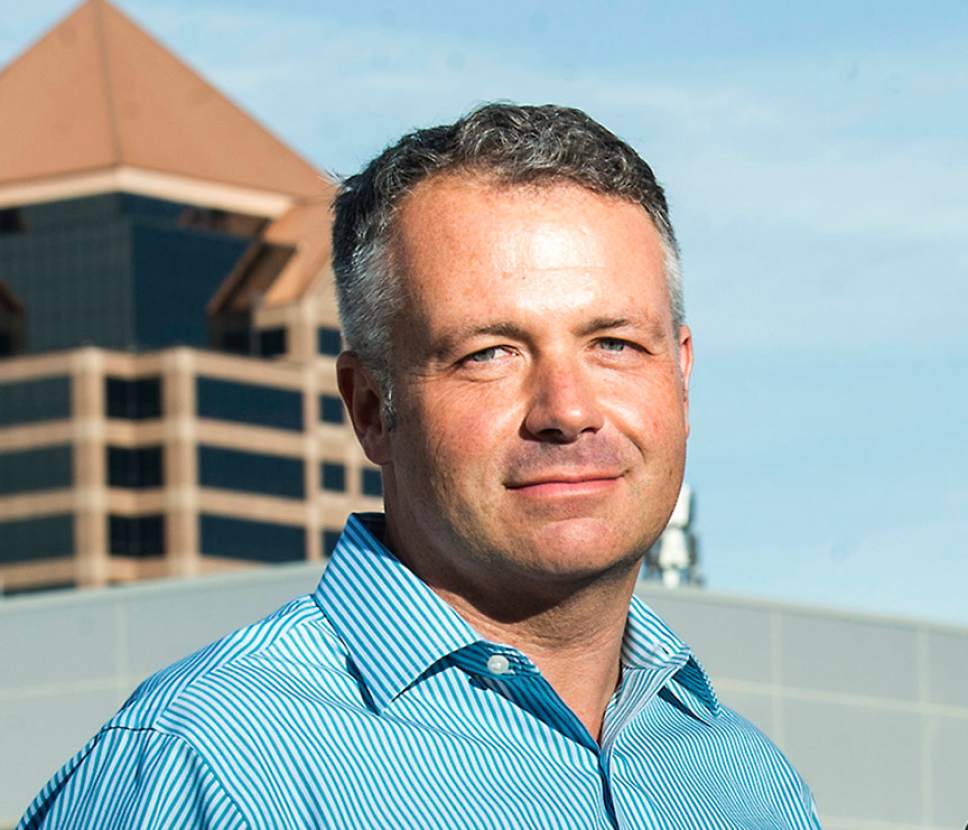This is an archived article that was published on sltrib.com in 2017, and information in the article may be outdated. It is provided only for personal research purposes and may not be reprinted.
We are at a crucial moment in homeless system reform. Decisions made over the next few weeks at the Utah Legislature and in local governments will have a profound impact on our ability to assist homeless families and individuals as we transform our state and community.
In moments of crisis, it is tempting to shift the pressure to the very people who are working to solve the problem. We cannot fall into that trap.
House Speaker Greg Hughes rightly acknowledged the crisis we face in his opening remarks at the Utah Legislature. Hughes understands the real costs — to our economy, society and to individual lives — of allowing this crisis to go unaddressed. He and his colleagues are rolling up their sleeves to help find solutions.
The Utah Legislature has already helped out by committing money to develop new resource centers in Salt Lake City that will replace the one-size-fits-all Road Home facility on Rio Grande Street. This process must move forward without delay.
In 2016, the Legislature also allocated $30 million to support a partial Medicaid expansion in the last legislative session. Unfortunately, the federal government failed to act on the necessary waiver so Utah could leverage these funds to expand coverage. But limited state funds are still available and should be used to help address mental health care needs and substance abuse treatment for deeply vulnerable people.
Even without action by the federal government, we are grateful the Legislature is focused on finding and securing funds to support treatment for homeless families and individuals this year. Indeed, funding for mental health care and substance abuse treatment is the logical outgrowth of the Justice Reinvestment Initiative that the Legislature has already passed. We have confidence that legislative leaders will continue their important work to address this crisis in our community.
Salt Lake City has also already undertaken the painful but necessary job of identifying new resource center sites. Understandably, some neighbors who live near these sites are apprehensive about how these centers will impact their neighborhoods.
Mayor Jackie Biskupski and the Salt Lake City Council deserve credit for undertaking this difficult job. The status quo on Rio Grand Street is not acceptable, which means that we can't falter and we can't go back. The time for action is now to ensure these facilities are sited and designed for success. City leaders must continue to work with neighbors to ensure that neighborhoods are welcoming and safe after the centers open. It will take transparency and collaboration to make this work. We have confidence that Salt Lake City leaders can deliver on their commitments to make these centers successful.
Under the leadership of Mayor Ben McAdams, Salt Lake County has labored to understand the causes of homelessness and craft a plan for systematic reform called Collective Impact. Providers, private sector interests and public leaders all collaborated on this consensus-driven approach. It will create long-term solutions that reduce homelessness by using data and rewarding real results in the provider community.
But even as we work towards this systematic overhaul, there is an acute need for additional jail space and substance abuse treatment. Salt Lake County should continue to work to identify immediate funding for additional jail beds and treatment options. We can assist police in fighting crime in the area by leveraging additional jail cells and treatment beds for substance use offenders. Our leaders have the compassion and capacity to make this happen. We have confidence in their ability to do the right thing and to do it quickly. We need additional jail space and treatment beds now. Otherwise the crisis will only deepen.
It is not a crime to be homeless. Addicts and mentally ill people are not criminals. If you live in Utah and you are in an emergency housing situation, there should be an emergency resource center available for basic necessities. If you need a home, we should work to make one available. If you have an addiction, you should be treated. If you have committed a serious crime, you should go to jail.
Our challenges are complex and difficult. But leaders at the state, city and county levels are all engaged and committed. With urgent action over the next few weeks from all levels of government, we can keep the momentum going towards immediate and long-term solutions. We have confidence that our leaders will step up to solve these challenges.
The time to act is now and everyone must play a role.
Jason Mathis is the executive director of the Downtown Alliance. Bryson Garbett is chair of the Pioneer Park Coalition.



